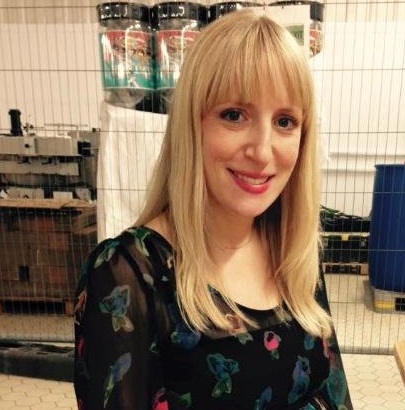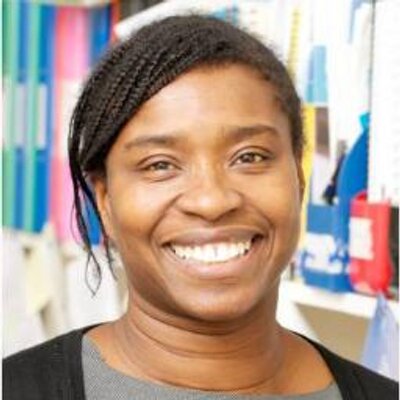Welcome to our first event of 2017 on blog writing with impact. We have two contributors this month who have shared their thoughts on how to write blogs with impact- Emily’s discussion highlights the benefits of blogging whilst Victoria’s post provides an example of a personal blog with impact.
On the tab ‘Discussion of blog writing with impact’ Carol Taylor and I pick up some of the points raised by Emily and Victoria, and share our thoughts on the ‘how’ and ‘why’ of blog writing.


I started a blog at the beginning of my PhD and it soon became a productive space to generate and showcase all the ideas that were emerging at this initial stages of my intellectual journey. One blog post I wrote was cited in an academic journal article and another prompted a discussion in a departmental corridor which generated some teaching opportunities. These are small things. But possibilities that would not have occurred had I not decided to start writing (however exposing it may have felt to do so at the time – and to re-read them now).
More recently, I blogged with colleagues as part of a group created to support doctoral students with their writing. This blog allows students and faculty to share pieces of writing and to reflect collectively on the processes involved in becoming a writer. Both of these blogs represent different online spaces in which to generate, share and reflect on ideas – and both have convinced me about the real value of writing about your research using blogs.
Why blog about your research?
Blogs enable you to capitalise on the energy of your thinking and to get your ideas out to your audience very quickly. This is particularly useful if your topic relates to current political or policy debates which require a timely response in order to be meaningful.
Blogs allow you to speak to new audiences in different ways. Not only is it good practice to consider the relevance of your work to different audiences, it can foster a more accessible (and better) writing style that allows more people to get engaged with your work and why it matters.
Blogs are less constrained than traditional academic publishing. The length, style and format of pieces are subject only to your creative limits. This means an idea which may not be substantial enough for a journal article can be written about in 200 words. And, what starts as a smaller idea, often turns into something bigger.
The freedom, and the permission, to write in different ways offered by a research blog encourages you to write more and in a different way than you might do in your thesis, journal articles or book chapters. This process of writing regularly and more creatively fundamentally makes you a better writer and, in the process of blogging, may generate new meaning about your work you hadn’t yet considered.
What to write about?
Write about what you care about and own these ideas. The only rule is that, because blogs are public and can be permanent, be conscious of what you write about and how.
Potential topics could include:
* Stories from the ‘field’ about the research process (ensuring your respect participants’ confidentially)
* Ideas emerging from your analysis
* Your perspective and response to topical events
* Summaries and take home messages of conferences or seminars that you have attended
How to make your blog ‘impactful’?
* Promote your blog using social media. Tweeting about a post to key stakeholders in your research or using relevant hashtags enables your ideas to be seen by a global audience.
* Keep it simple with one main message and write concisely (around 500 words maximum). Get to the point and stay there.
* Make blogs visually appealing with captivating titles, images and well-structured text to ensure the reading process is pleasurable.
* Consider your audience carefully and write for them, not for you. This will ensure that what you have to say is meaningful and relevant to those who matter the most.
* Connect with, and get inspired by reading other academic bloggers. Impact is fundamentally about public dialogue with your work and blogging can enable a collective conversation from which a community of scholars emerge.
A simple idea written well is incredibly powerful. Blogs are not just add-ons to academic research, but arguably represent the essence of the academic project – a passion for knowledge and a willingness to speak publicly about it.
Happy blogging!
As I sit here on a Sunday evening gathering my thoughts to begin to tackle this ongoing question ‘so what’s it like to be female and Black or Black and female a sudden surge of tiredness takes over. Is this something I really need to do now and if so why bother putting myself through such mental torture?
So that you have an indication of where I am coming from I thought it would be useful just to give a glimpse of who I am. I was raised by Upper-Middle Class German Jewish parents, which makes me very white. I have coined the phrase ‘socialised as white’ as I look black but have been socialised white. At this stage you may be asking So What? Let me start from my humble beginning – at the age of six months I started my journey into whiteness as I was given away by my biological mother in the middle of a busy London station. From there I took up my place in ‘the large house’ in North East Devon.
I remember when I was first introduced to the importance of being a woman I really felt excited. It was whilst working at a local college in Broadstairs in Kent I had been invited to a women’s conference. I was not sure what it was but thought it would be a useful experience for my career and CV. (Can you imagine accepting an invite to a women’s conference just as a way to move up the career path in the current climate?).
The conference was located in a great place overlooking the Kentish coast, it was so picturesque and the right spot for a three day conference. It would be the first time that I would spend three whole days in the company of women. I was young, a mother of two young daughters and teaching in a further education college. For me the experience which I had in common was working in education and being a woman. It was a really great three days – I did not have to think about the care of my daughters and my then husband (who later announced he was actually gay) was excellent with the girls and domestic chores etc. I learnt a lot and was able to feel at ease with my confidence. We did many tasks which delved into our past, however I skipped around many of these because even then I knew there were areas of difference which I was not ready to explore.
As I stood in the group feeling somewhat at ease there was a notion of difference which I had not discussed in a group setting. I was a female who was black surrounded by other women who were White. In normal
circumstances I would not have mentioned this, however it was something which for the first time as an adult where I was rather conscious of being Black and female.
I do remember a room having the poster of ‘Other Women’ on the door and wondering if this is where I needed to be. It was upon asking somebody when I was told it was for LGBT- something which I did not understand then.
After the conference I became an active feminist and decided that I needed to stand up for the rights of women especially as I had two daughters. I was able to belong as a women in the gender movement which added to my identity.
So let me now move the story along a little further when I was fortunate enough to get a position in London. Starting a post in London coming from first Devon, Somerset and then Kent was interesting.
I straight away became active in as much as possible including gender, race and LGBT issues. My focus was gender and it was when I became a chair of one of the regional equality groups that I became aware of difference. I turned up to a meeting as Chair of the Women’s committee and was told that the race committee was next door. I was shocked as it was the first time that I had not been considered as a woman. I said well I am a woman and the chair of this committee. I could see people were not happy however I pressed on with the agenda.
It was some years later that I started to realise that there were actual differences in being a feminist and that the core political issues connected to being white or black in the movement were fundamental in how one was seen as a women.
Some people would think I was strange as they were unable to understand who I was and who I stood for. To me it was clear I was a woman and the feminist agenda needed to reflect me as a higher-middle class woman of colour.
The challenge I faced was from liberal white women living in London who struggled to understand who I was and wanted to help me.
It was then I started to realise I was slowly changing and seeing everything so clear I was on the journey of coming to terms of being a female and Black.
I find when I am needing to unpack my thinking I post something onto my Facebook page and then wait for the responses …
Hi All I am in so much pain right now. Looking around it is hard. Keeping a job in the academy is challenging you are surrounded by discrimination and people who what peace but do not know what to do. there are others that do not want to believe that their colleagues could be racist…but instead allow themselves to be drawn into games where they can stand back and say ” oh I did not really mean to be like that…it was I needed to think about, this and that , I am so sorry if I hurt you. It is hard because you want to yell from the roof top but you have to stay calm whilst everything around you is so very difficult. We need to stand to together and stop wanting to be the “model minority” and make some noise. We have the skills we must connect internationally to become one voice. When it is late at night and I want to talk to somebody because the world appears to be so off key I need to know that we are there for each other. I needed to say how I feel tonight after watching the videos of our USA brothers RIP to all. Love and blessings x (Victoria Lane 8th July 2016)
